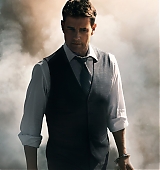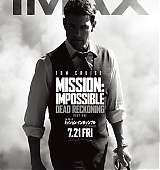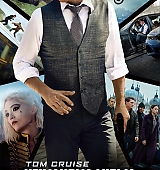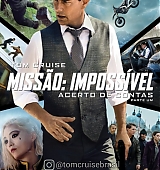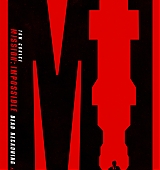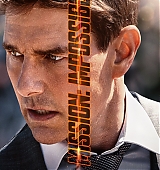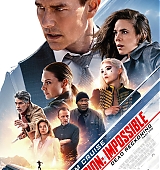Most World War II buffs know about some high-ranking Germans’ attempt to assassinate Adolf Hitler in July 1944. But not-so-well-informed history geeks — like me — should learn a lot from Valkyrie, Bryan Singer’s data-rich procedural about the close-but-no-cigar coup attempt.
A surprisingly suspenseful thriller, considering we know how it ends from the start, Valkyrie was painstakingly put together by “the usual suspects†team of director Bryan Singer and writer Christopher McQuarrie (Nathan Alexander also worked on this script). Light on military action — it’s mostly a series of high-risk deceptions, close calls and miscommunications — the film develops increasing tension through straightforward plot unraveling. Though inevitably talky, it benefits from a hushed, matter-of-fact tone that, while not the most dynamic way to tell a tale, certainly seems apt for the conspiratorial business at hand.
Individuals’ motives and contradictions could have been better-explored, but then the Third Reich was falling apart and Nazis were still Nazis. So what else do we really need to know about some sensible Germans’ rationales for trying to stop the carnage sooner rather than too late?
Tom Cruise plays Col. Claus von Stauffenberg, the plotters’ de facto leader and the guy who personally brought the bomb to the Fuhrer’s Russian front headquarters. An aristocratic anti-Nazi for some time, he worked his way up through the war ministry to get that close to the despised leader. The fact that Stauffenberg gave up an eye and an arm in the service of the Fatherland impressed Hitler. Chronic Cruise criticizers who still say he looks goofy with an eye patch or giving a stiff-stump “heil†salute after seeing this picture are only demonstrating willful historical ignorance.
Perhaps the complaint that Cruise speaks in flat, American intonations while such fine English co-stars as Tom Wilkinson, Bill Nighy, Kenneth Branagh, Eddie Izzard and Terence Stamp use their natural voices is, for some, more legitimate. It didn’t bother me, though, especially since no one goes out of their way to emphasize their accent like they do in such ludicrously British Holocaust dramas as The Boy in the Striped Pajamas and the upcoming Good.
But if dialects don’t always match in Valkyrie, everything else about the film does to an enjoyably immersive degree. The sets, uniforms, equipment and even the weather conditions appear carefully orchestrated to make us believe that this actually could be Berlin and East Prussia just as it was all about to go to hell.
And as the debacle of a few good Germans’ efforts to assist history comes agonizingly close to the success we wish it would have had, Valkyrie quite pragmatically teaches us that righteousness and moral courage aren’t always enough to overcome evil — or even the quite human factors of paranoia and self-delusion, weaknesses that were hardly exclusive to just Nazis.
(Source: Houston Chronicle)
